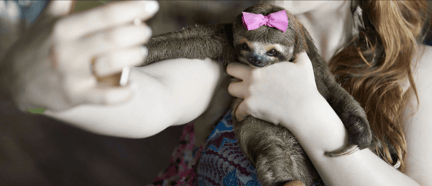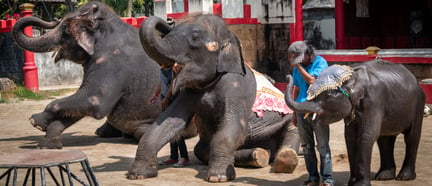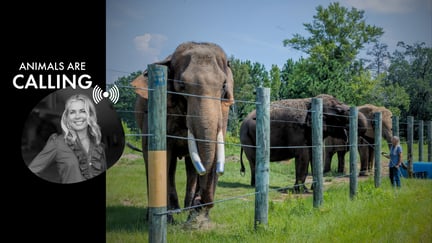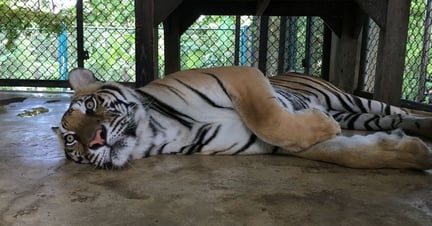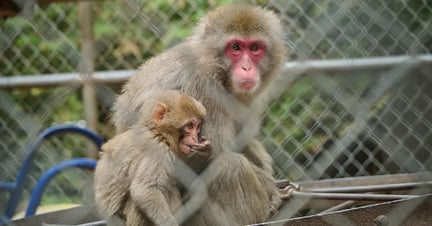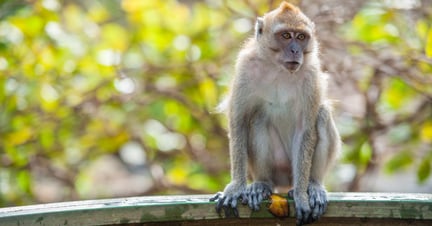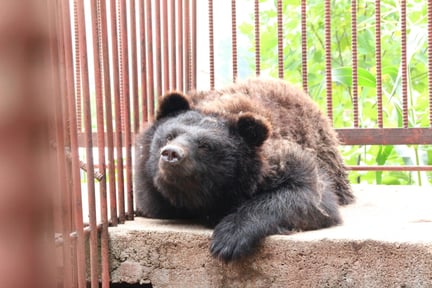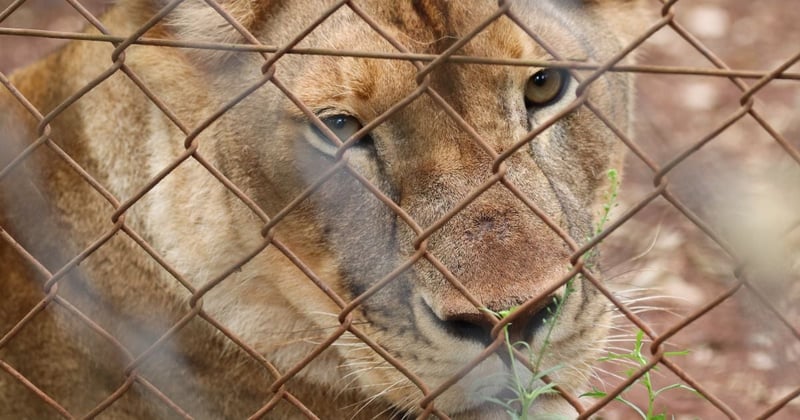
Lion attack in Thailand highlights dangers of keeping wild animals as pets
News
A viral video of a lion attacking an 11-year-old boy in Thailand has reignited calls for stronger laws to stop wild animals being kept in private homes.
The footage, shared on TikTok, shows the lion get loose from a private property in Kanchanaburi province.
According to local reports, a one-year-old lioness broke free from its restraints while its cage was being renovated. It ran towards the boy, bit him on the hip and injured a man who intervened to help. Both were taken to hospital for treatment.
Authorities have since seized the lion and are taking legal action against the owner, a social media influencer, under Thailand’s Wildlife Conservation and Protection Act.
The incident is part of a wider problem in Thailand and around the world, where wild animals such as lions and tigers are being kept as pets or status symbols without monitored regulation.
A tragedy that could have been prevented
World Animal Protection Thailand has condemned the attack and called for urgent legal reform to end private ownership of wild animals.
The "lion escapes biting a baby" event is not an accident, but a predicted tragedy - the result of letting wild animals be raised in homes or personal property uncontrolled.
A wild animal is a living being, not a toy, a collector, or a symbol of power.
Wild animal breeding is not love, it is taking away their freedom and a violation of their welfare.World Animal Protection urges relevant agencies to pass laws banning tigers, lions and all kinds of wild animals in private places except for conservation or research studies under strict animal welfare standards.
It's time that we end this cycle of violence and neglect, so that generations to come can see wildlife where they belong - in the wild, not in cages.
Lions are not pets
Wild animals have complex physical and psychological needs that can never be met in a home. As lions grow, they become stronger and unpredictable, putting both people and the animals themselves at risk.
Keeping them in private spaces causes immense suffering and creates dangerous situations, as this latest case shows.
Social media is driving demand
On platforms like TikTok and Instagram, videos of people playing with lion cubs or posing for selfies with exotic animals are widely shared. These posts can make keeping wild animals seem glamorous or harmless, when the reality is often cruelty and neglect.
Many of these animals are taken from the wild or bred in poor conditions. They are chained, confined to small cages, or used for photo opportunities with tourists.
Our Wildlife Selfie Code encourages people to avoid taking or sharing images that involve direct contact with wild animals. By refusing to engage with this content, we can help reduce the demand that fuels the trade.
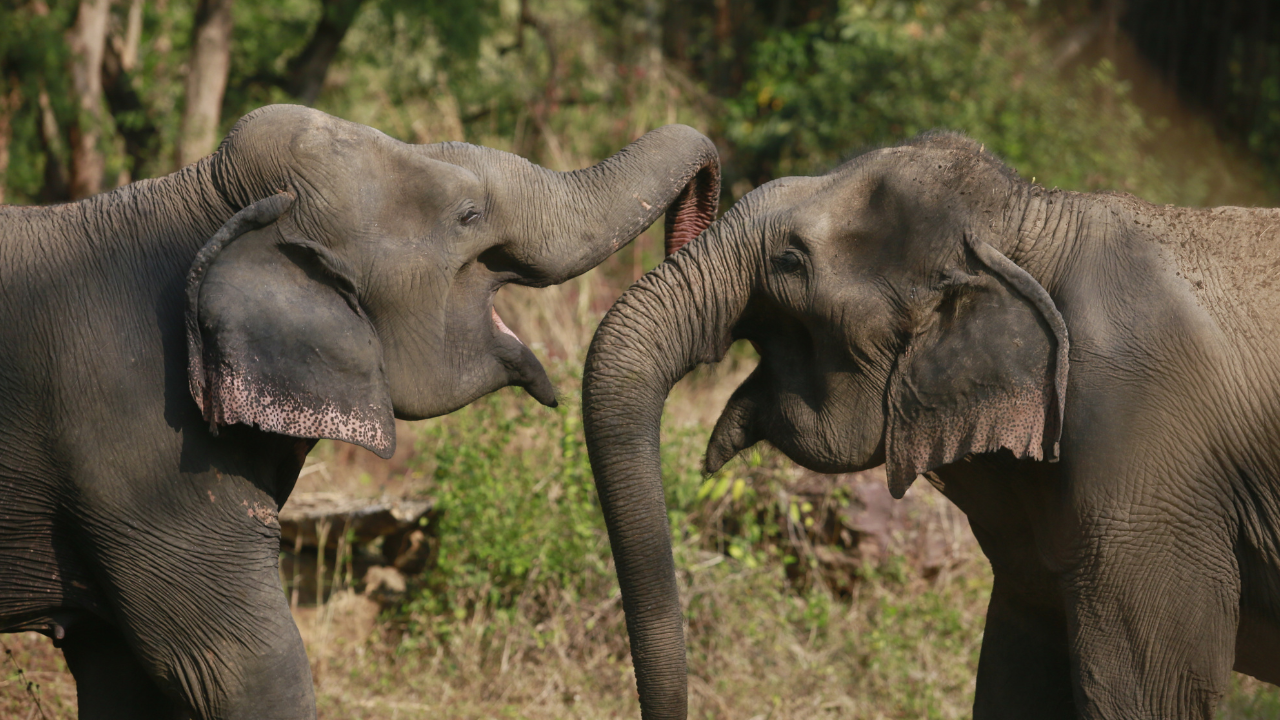
You can make a difference for vulnerable animals
Donate now
When you make a donation, you’ll join a passionate group of supporters who are determined to change the world for animals. We're fighting animal cruelty wherever we find it — are you with us?
Click to donateStronger laws are urgently needed
World Animal Protection Thailand is calling on the Thai government and others to ban the private ownership of wild animals and end their use for entertainment.
Lions and other wildlife belong in the wild, not in people's homes or cages. By closing legal loopholes and changing public behaviour, future tragedies can be avoided and animals can live free from cruelty.
Related content
Wildlife Selfie Code
Many people offering wildlife selfies in the Amazon search treetops for sloths to steal. Don’t be part of this ugly picture: make sure your wildlife selfies are cruelty-free.
Protecting wildlife in travel & tourism
Wildlife
Would a real responsible traveller have captive wildlife entertainment on their wish list?
Keep Wildlife In The Wild
Blog
In this Q&A, we discuss the suffering of sentient wild animals when they are kept in captivity for tourist entertainment or as exotic pets.
